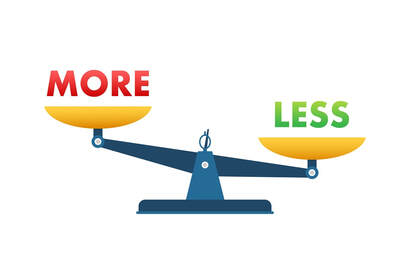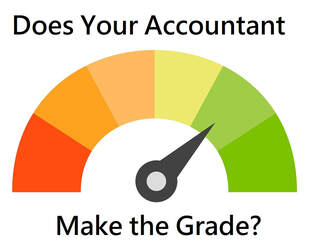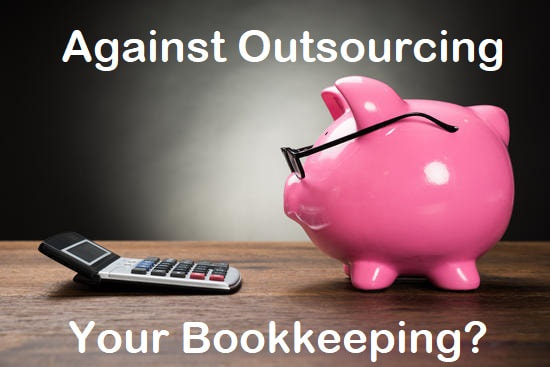In Pursuit of Profit
Read our expert article below or sign up to get articles sent to your inbox.
 A resource offered in partnership between The ASP Team and CFO Selections One commonality among our businesses at The ASP Team and CFO Selections is that we often talk to business leaders that aren’t sure which kind of accounting role they need. They typically understand the duties they would like the person to perform and the deliverables they expect to receive, but they aren’t sure what to call the role exactly. Without the proper title it makes it difficult to hire into the role or find an accounting services company to provide exactly what they need. Sometimes clients will come to us at The ASP Team saying that they need a “bookkeeper” as a catch-all phrase for someone doing any kind of accounting work but what they are really looking for is something more – an Accountant, Senior Accountant, or even Controller. Similarly, sometimes clients will come to us at CFO Selections saying that they need a “CFO” as a catch-all phrase for someone doing more advanced accounting work or leading an accounting team but what they actually need is something less – a Controller, Accounting Manager, or Senior Accountant. How do you know which you need?
The role you need depends on your business needs, so let’s look at common business triggers that most likely require needing the next level of financial role, and what kind of activities and responsibilities each role typically includes. We’ll start with bookkeeper and work our way up to Chief Financial Officer (CFO).
What would happen to your business if your accountant unexpectedly quit or was hit by the proverbial bus? How easily can someone else step in to keep the books in order?
I didn’t completely embarrass myself among the fresh-faced CPAs just out of college representing their public firm teams. However, I definitely regretted my decision to play after a bad midcourt collision left me looking at a wrist that was definitely not in the right position. After a long ER visit and eventual surgery to add some new hardware, the recovery process began.
I still do some part-time accounting consulting work for small businesses and being able to type is a key part of getting the job done. Having a wrist that wasn’t working, along with the pain involved, really cut into my ability to be productive. Some of the work I was doing couldn’t easily be handed off, so I had to do my best to continue getting work done despite my limitations.  The 2020 pandemic caused significant change across the business landscape. CEOs and business owners were put to the test as they decided how to strategically navigate the effects of the pandemic. As a result, many business owners have realized certain aspects of their company’s financial operations may shift indefinitely. As the practice manager for an accounting firm, I’ve been in a unique position throughout the pandemic because I’ve witnessed our client pool expand to include companies that would never have considered using a third-party accounting company to handle their accounting needs before. However, these business owners were put in a difficult position when in-person work was shut down and some key employees had to take time off for sickness or family obligations. Some lost their accountants to virtual school responsibilities, while others were forced to upgrade their desktop accounting systems to cloud-based versions so employees could collaborate remotely. As a result, business owners have now experienced first-hand that their bookkeeping and accounting work can be performed remotely without having to sacrifice quality and efficiency. In other words, the same value can be realized whether day to day accounting is being performed remotely or onsite. Let’s look at what business owners are telling our accountants, and what this means for the future of accounting and finance.  Your accountant just gave notice, what do you do now? Hopefully, your accountant gave you more than the obligatory two weeks, but regardless of what the timeframe looks like, the steps are the same:
Time is of the essence in this situation, especially if it coincides with a closing period or tax season, so you should get started immediately!  Many business owners worry that their accountant may not be up to par. This is especially true when business owners do not have strong financial acumen themselves. They wonder if their accountant is truly acting with the company’s best interests in mind and whether they have the skillset needed to do the job well. But without significant financial expertise, business owners often do not know what to look for to quell their concerns. Instead, many just focus on the day-to-day needs of the business and hope the financial leadership of their company is being handled effectively. This is a big mistake. A lack of connection to the company’s financial operations can land a business owner in trouble quickly if an accountant has misrepresented their experience or lacks key financial knowledge. In other instances, an accountant may have all the requisite qualifications, but lacks the work ethic or integrity to do excellent work for their employer. So, how does a business owner know if their accountant is doing a good job?  There are plenty of resources about the benefits of outsourcing, yet many business owners are still resistant to outsource their bookkeeping. Even businesses that outsource other activities tend to keep a tight grasp on their financial functions. Because cash flow is so important to small businesses, bookkeeping and accounting tend to be some of the last functions that business owners are willing to relinquish control of when they formulate strategic growth plans. But why? Why are some business owners still against outsourcing their bookkeeping?  How is your bookkeeper doing right now? Is your bookkeeper focused and able to do high-quality work, or stuck in the weeds and struggling to keep up with business demands? Bookkeeper burnout is extremely common because bookkeepers are often asked to do more than their job description would indicate that they should be handling. This is especially true at small businesses, where everything including the kitchen sink is often thrown at bookkeepers because there are just not enough employees to do everything. Professional burnout leads to carelessness and poor-quality work, which is especially dangerous when the work is managing the company’s finances. Burnout among bookkeepers can lead to errors, sloppy work, and missed deadlines that can jeopardize ongoing cash flow and future profitability. The best way to avoid overwhelming your bookkeeper is to have a strictly defined role and stick to it, hiring additional personnel to handle other tasks where needed. So, what should be included in your bookkeeper’s duties and what should not?  2020 has been a year of disruptions and reactions. Companies have reacted to supply chain interruptions, new regulations, shifting market demand, and staffing issues, among other challenges with some faring better than others. Marcus Wagner explains, “Because of COVID-19, businesses and their accounting departments are going through a cycle of shock (and maybe some denial), survival, learning and adaptation. For those of you who haven’t done so yet, it’s critical to begin the shift into the learning and adaptation phases as quickly as possible so we emerge stronger as a result." Adapting has been critical thus far and will continue to be as we move into 2021. An adaptation mindset allows your business to respond to current challenges and anticipate future disruptions to generate better financial outcomes. Companies with accounting teams that adapt quickly can minimize revenue loss during a downturn and capitalize on revenue opportunities faster during a recovery period.  Do you need to hire a bookkeeper? If you are asking the question, the answer is yes! Most commonly bookkeepers are brought in due to lack of time, lack of financial expertise, or growing business complexities. Whether a bookkeeper is freeing up time for an owner to engage in revenue driving activities or providing deeper financial knowledge, this professional role can be a crucial hire at a growing business. When you are looking to hire a bookkeeper for your small business, will any bookkeeper do? Or do you need a bookkeeper that specifically works with small businesses? And, what can a small business bookkeeper offer that you cannot do yourself with QuickBooks or another accounting software? |
SUBSCRIBE:DOWNLOAD:DOWNLOAD:Categories:
All
Archives:
July 2024
|
Services |
Company |
|
4/22/2024